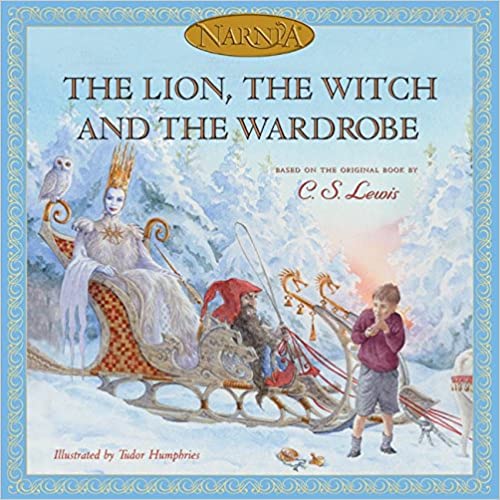How Christian Must Christian Fiction Be?
For years, perhaps since Spec Faith first became a team blog designed to promote fantasy and science fiction written for the Christian market, any number of our writers have addressed the definition of Christian fiction. One of the earliest posts by a founding contributor, Mirtika Schultz, illustrates the point. The post is entitled “What Makes Christian Speculative Fiction “Christian”, Anyway?” (For other examples, see Stephen’s “How To Fix Christian Fiction: More Christianity” and my own “Christian Fiction Must Be . . . You Know, Christian“). Why, then, would I want to revisit the subject? Largely because “the times, they are a changin’.”
The times change but the gospel does not. The word of God is fixed in heaven, but it is living and active (see Heb. 4:12), meaning that its truth is unchangeable, and at the same time it speaks into the lives of people across the globe, in any culture, at any time.
 So culture changes, and with it, the stories we write, including the stories Christians write about life as or for or about Christians. Anyone reading articles archived here at Spec Faith on this topic will know that as a group we do not believe every story labeled “Christian fiction” needs to be evangelistic, with a character or two converting to Christianity. But the stories that do present the gospel, do need to reflect the truth at some level, and not error.
So culture changes, and with it, the stories we write, including the stories Christians write about life as or for or about Christians. Anyone reading articles archived here at Spec Faith on this topic will know that as a group we do not believe every story labeled “Christian fiction” needs to be evangelistic, with a character or two converting to Christianity. But the stories that do present the gospel, do need to reflect the truth at some level, and not error.
Imagine my surprise when I recently read a novel considered “Christian” which contained something that was far from the Bible. This novel, while fantasy, was set in the contemporary world and identified a well-known religion—let’s say, Mormonism, though it was not that—and formulated the premise of the story around the most “unChristian” aspects of the religion (if Mormonism had been the religion, the idea might have been that Jesus was a created being instead of the Creator, and the whole story hinged on that.) Clearly, I don’t want to reveal the story I’m referring to for multiple reasons. Suffice it to say, reading a story centered on something that is not true to the Bible, and yet flying under the colors of Christianity, caught me up short.
Not long after, I read a science fiction which did not mirror our world at all, and in which the closest thing to God was a plural, unseen group that sometimes interceded with characters by giving them dreams or messages. In other words, you’d be hard pressed to say that this story depicted Christianity as we know it.

Pillar of Christian fantasy
In couching this struggle in symbol and metaphor and pitting Aslan and the White Witch against one another, Lewis literally lionizes Christianity and situates the religion’s central story, the story of Jesus Christ, in a fantasy realm where its miraculous happenings and moral core can be viewed in a new light. (The Lion, the Witch, and the Wardrobe)
I think the secret to the Christianity in speculative fiction might be the very thing that has made Lewis’s Narnia series so successful:
C. S. Lewis was a religious person who believed in the Christian God and in Mere Christianity; Lewis provides answers to Christian beliefs and moral values. He is not telling us what to do; he is just presenting “what Christianity is” (Lewis 115).
(Christian messages and moral values in The Lion, the Witch, and the Wardrobe)
“Presenting ‘what Christianity is.’ ” The essay goes on to say,
his novel Narnia provides a solid basis of Christian messages, moral values and lessons which have been woven in perfectly into the characters
That’s Christian fiction. “Presenting” the Christian message, the moral values, should not be preachy. It can be overt. It can be covert through symbolism and nuance. The point is, nothing will fly in the face of the Christian message or of the moral values.
Granted, events in the story may depict unbelievers who reject the message, who have their own idea about what is real. They might have very different values, but there will be no mistake that the story does not promote what is untrue. That, I think, is a standard that works even in changing times.









































Well that’s no fun, not outing the book you’re referring to in the weird Mormon metaphor.
Hijack thred:
I wanna take a moment to express how much I love Marie Kondo, especially when I hear from my dad that my aunts are digging out the 12th boxed set of silverware from Grandma’s closet, the one that belonged to great Aunt Anna, not the one that belonged to great Grandma Mildred.
Also she validates my impulse to apologize to inanimate objects, except I find it a lot more helpful to do what she does and thank the objects before I toss them in the donate pile/dumpster.
“You are a fancy, sexy appliance, Dyson Ball vacuum cleaner, and you were awesome when you worked, but I can’t figure out how to fix your stuck brush bar and I can’t really justify keeping you in the closet for another 3 years when I already bought a cheap Dirt Devil that I can easily disassemble and fix.”
“Heyyy good-looking synthetic-fiber slacks, you made my butt look hot but since I haven’t managed to get an office job in 5 years maybe it’s time you find someone else’s butt to enhance.”
Hi, Becky! What you’ve said makes sense: “The point is, nothing will fly in the face of the Christian message or of the moral values.”